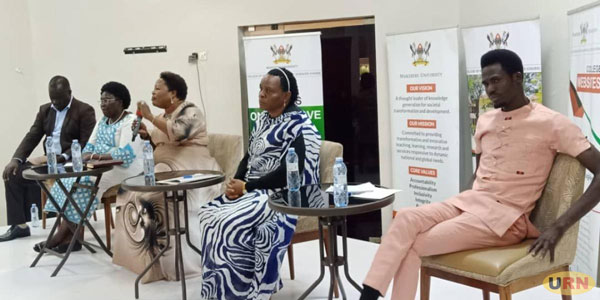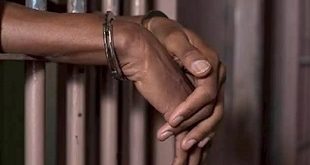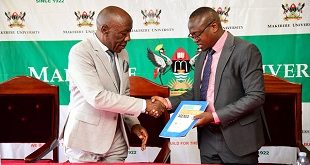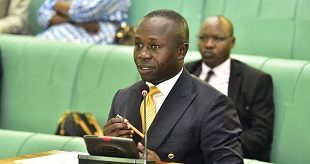
Gulu, Uganda | THE INDEPENDENT | A former street child in Gulu, Patrick Ocen has pleaded with the government and authorities to handle with caution the Aguu (street children) question in Northern Uganda.
He believes the issue is complex and that those young people who were victims or survivors of the war have many questions that the authorities have failed to answer.
“I come from a family that had a very beautiful young girl who became my mother many years ago. But something happened she became a victim of rape,” narrates Ochen, who says he doesn’t know his biological father or clan. He brings up some of those issues as he shares his personal story of growing up without knowing his father and clan mates.
“She conceived and gave birth to twins and one of the twin persons happened to be me,” narrates Ochen, a student at Gulu University.
Ochen hates blaming the sometimes violent youthful boys (Aguu) on the streets of Gulu.
In Lira and Lango, they have been labelled Owukwuk meaning they can ransack and turn their victims upside down and flee with all valuables. The School of Women and Gender Studies refers to those youthful persons as “The floating population”
However, Ochen prefers that they be referred to as socially excluded youth.
Ochen narrates his story so that people understand his ordeal and those of thousands of others who cannot trace their fathers or clan years after end of the war waged by the Lord’s Resistance Army (LRA) commandeered by Joseph Kony.
As many as 25,000 children had been abducted by the LRA since the conflict began, for use as soldiers, sex slaves, and porters At the peak of the LRA war in 2003, thousands of children would trek from the Internal Displaced Persons Camps (IDP) to Gulu town for safety fearing abduction by the LRA. They were known as “night commuters”. Some of those still live in Gulu city.
Ochen was born in the jungles somewhere in South Sudan formerly part of Sudan so he was not among the night commuters.
“She raised me with an unknown father. The only thing I knew was sleeping in the bush, hearing birds sing in the air,” Ochen remembers.
Further, Ochen narrates that his mother with her two children tried to escape from captivity. “Unfortunately, she was captured with a team of mothers and taken back to the rebels barracks. That is now in South Sudan. She was beaten terribly. I was hit on the head with a red-heated panga. That is why I don’t shave my hair” he said. Ochen’s hair is smartly kept, with no dreadlocks.
“My mother died and left me in the hands of a friend who later on in 2000 came back with me from Sudan to a rehabilitation centre in Lira called Rachel Rehabilitation Centre. I stayed there for some time, but because you don’t know who your father is, tracing for the paternal family became a challenge,” Ochen said.
The grandmother who came and picked him died after three days. His uncles said they can’t keep him as he will grow and begin struggling for land. “This is a spirit’s son we don’t know the origin,” they said.
He later found fellow children that were born from captivity that were also chased from home, became the ring leader but unfortunately, four of them were killed.
Ochen has been working for the socially excluded people (Aguu) for the last eight years.
“I became an activist. Even from high school. And I was focusing on children born in captivity. These are the children whose mothers were abducted, and some of them as a result of rape. Others don’t know their maternal families, others don’t know their paternal families.”
He said the issue of socially excluded youth in Gulu “Aguu” is very complex. He said while it is generally known that the Aguu are homeless persons in Gulu, some of them have homes.
“No one should say that these people are homeless. The LC I chairperson in one of the cells in Gulu, the zone is an Aguu, one of the lecturers at Gulu University, the child is in primary six. He is typical Aguu.”
A study whose findings were published in the Journal of Human Security in 2021 concluded that referring to the Aguu today as a criminal entity and in derogatory terms, overlooks their complex life and origins.
****
URN
 The Independent Uganda: You get the Truth we Pay the Price
The Independent Uganda: You get the Truth we Pay the Price


